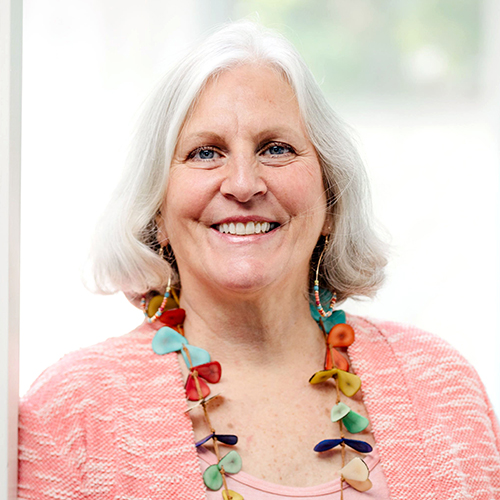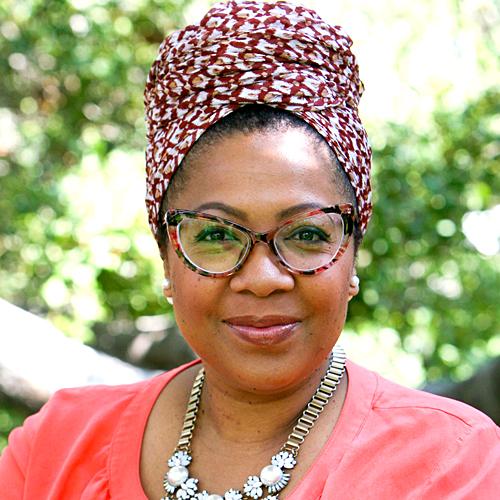 IBCLC Detailed Content Outline: Pathology / Maternal Focused CERPs - Section III B
IBCLC Detailed Content Outline: Pathology / Maternal Focused CERPs - Section III B
Access CERPs on Pathology / Maternal for the IBCLC Detailed Content Outline recertification requirements. On-demand viewing of the latest Pathology / Maternal focused IBCLC CERPs at your own pace.


Sejal is an International Board Certified Lactation Consultant (IBCLC) in private practice and an infant massage educator in Hillsboro, Oregon, USA. She combines her professional expertise with her personal instincts as a mother and a supportive team member.
She holds a Bachelors in Microbiology and Clinical Laboratory Science.
She also brings with her the following comprehensive toolkit: Certified Educator of Infant Massage, Formerly Certified in skin-to-skin care for full term infants from the United States Institute of Kangaroo Care Certified Provider of Innate Postpartum Care.
She has presented nationally and internationally for GOLD lactation, ILCA, community colleges, local lactation organizations.
As a lactation consultant, she believes that every individual needs to be educated about breast health, optimal infant feeding and how breastfeeding support is a basic human right and can impact world health globally.
She strives to help each family by continuing to learn all she can about breast health, breastfeeding ecology, breastfeeding movement and parent-infant connection using the neurobiological and infant mental health lens.
When she’s not with her clients, you can find her at home in Hillsboro, Oregon, USA, listening to bollywood music, hanging out with friends and spending time with her family.
Topic: Calm & Regulated: Rethinking Our Approach to Latch and Positioning - [View Abstract]
Topic: Teaching Infant Facial Massage to Parents to Support a Functional Latch - [View Abstract]
Evaluating feeding and observing babies at the breast is a big part of what lactation professionals do. The privilege to observe babies at the breast in private practice at a much slower pace has provided a unique observation opportunity. Each baby and parent dyad is unique and so are the challenges that come with it. The focus of this interactive workshop is to help participants become astute observers of the infant’s movements and posture before and during feeding. It will further enhance their clinical skills by looking at the big picture of how the infant's innate behaviors ensure harmonious breastfeeding ecology. This presentation will take a deeper dive into how the infant’s use of their senses, and nine steps of the breast crawl not only lead to self-attachment but it also lays down the foundation for self-efficacy and self-regulation in babies.

View Details / Enroll

View Details / Enroll

An Ecosystemic Approach to the Clinical Management of Breast and Nipple Pain

Carmela is a family medicine MD, bachelor´s degree in Public Health Education, and IBCLC since 2005. She is also a BFHI Evaluator and the co founder and past president of the Spanish Lactation Consultant Association (AECCLM). She works in a private Family Wellness Clinic, Raices, as person in charge of the lactation program, which includes two IBCLCs attending breastfeeding families and an extensive offer of breastfeeding training for health care professionals and breastfeeding peer counsellors. The team has trained over three thousand doctors, midwives and nurses from both the Spanish National Health Service and the private sector in Spain. She is a frequent lecturer at national conferences, and has also lectured internationally, both on-site and online. She is the author of several scientific papers on breast pain, mastitis and tongue tie. She is also the author of a breastfeeding/parenting book, “Amar con los Brazos Abiertos” (To Love with Open Arms). She is married to Carlos and they homeschool their four children.
Topic: Assessment and Management of Mastitis - [View Abstract]
Topic: Getting Milk Production off to a Good Start - [View Abstract]
Topic: Management of Chronic Breast Pain: Holistic Approach - [View Abstract]
Although pain is not a normal part of nursing, many mothers experience this difficulty at some point in their breastfeeding journey. It is one of the main reasons for breastfeeding consultations, and an important cause of early, undesired weaning, especially if the infant is not thriving. Assessment of pain during lactation differs significantly from other types because it is a system we must explore – not a single patient but the interaction between the mother and her infant (that is, the dyad). In this talk, an ecosystemic overview of the evaluation and management of breast and nipple pain is offered, based on current research and clinical practice. With appropriate support, the vast majority of dyads are able to breastfeed comfortably and effectively.

View Details / Enroll
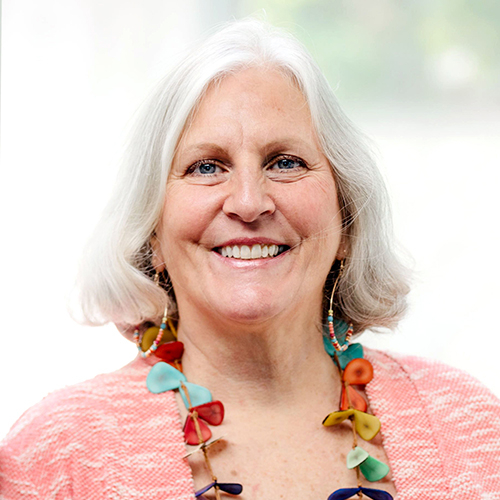
An Introduction to Structural Causes of Deep Breast Pain and Milk Stasis: Subluxations and Myofascial Trigger Points

Dr. Hazelbaker has been a therapist in private practice for over 30 years. She specializes in cross-disciplinary treatment and to that end has taken training in several modalities to best assist her clients. She is a certified Craniosacral Therapist, a Lymph Drainage Therapy practitioner, a Tummy Time™ Trainer, a Haller Method practitioner, A Pre and Perinatal Psychology Educator, a Lactation Therapist Diplomate, an International Board Certified Lactation Consultant and a fellow of the International Lactation Consultant Association.
She earned her Master’s Degree from Pacific Oaks College (Human Development specializing in Human Lactation) and her doctorate from The Union Institute and University (Psychology, specializing in Energetic and Transformational healing.)
People recognize her as an expert on infant sucking issues caused by various structural problems like torticollis, plagiocephaly, brachycephaly and tissue shock-trauma. She invented the Hazelbaker™ FingerFeeder and the Infant Breastfeeding CranioSacral Protocol™ to assist in the resolution of this type of infant sucking dysfunction.
Topic: Cranial Nerves: A Critical Component of the Process of Breastfeeding - [View Abstract]
Topic: Creating Flow: Using Lymphatic Drainage Therapy for Breastfeeding Issues - [View Abstract]
Topic: Finger Feeding: What Do We Know? What Should We Know? - [View Abstract]
Topic: Gamechangers: New studies that will change the way we think about tongue-tie - [View Abstract]
Topic: Infant Trauma: Impact on Breastfeeding - [View Abstract]
Topic: The Faux Tie: When is a "Tongue-tie" NOT a Tongue-tie? - [View Abstract]
Topic: The Impact of Bodywork on Infant Breastfeeding - [View Abstract]
Topic: What Does Torticollis Have to do with Breastfeeding? - [View Abstract]
Deep breast pain and milk stasis are often blamed on back pressure on milk ducts, incomplete emptying and fungal infection. Although these issues can be attributed to backpressure in the case of milk stasis, or "not likely to be related to" in the case of fungal infection inside the breast, the forgotten role that structural integrity plays in breast health can explain those problems that develop and persist despite proper milk removal and general health care of the breast. This presentation covers the anatomy and physiology of rib and vertebral subluxation and myofascial trigger points in generating deep breast pain and milk stasis. Several case reports illustrate the concept; proper care for resolution of these issues is covered.
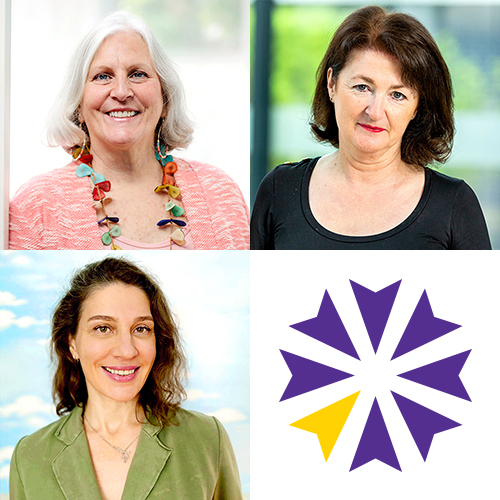
View Details / Enroll


Shondra Mattos is an IBCLC (Internationally Board-certified Lactation Consultant) and owner of a Location-independent lactation practice where she provides breastfeeding and infant feeding support to families countrywide.
Shondra finds the science of lactation fascinating, and as such, she has a passion for sharing her understanding of complex lactation subjects with her colleagues and aspiring lactation students. When she's not with clients, speaking, or teaching, she spends time with her husband and daughter in Fayetteville, NC.
Bryna is a lactation consultant, mentor, educator, and birth doula in the Pacific Northwestern United States. They are active in their community as an advocate for mutual aid, reproductive justice, and reduction in barriers to care. They also own and manage an inclusive private practice. As a member of both Queer and Neurodivergent communities, offering inclusive care on every level is very important to Bryna. Their vision is to offer information and tools to providers to build a community of comprehensive, concordant, and individualized care for all families in the perinatal period.
We propose a talk that outlines the anatomy and physiology of normal infant feeding. Our talk will cover the basic functions of infant muscle groups recruited for latching, sucking, swallowing, and drinking human or artificial milk. We believe that if lactation professionals understand normal physiology as it pertains to muscle groups, they will better be able to educate and help the families our profession serves. At the end of this talk, the lactation professional will be able to establish a baseline for normal muscle function when evaluating the breastfed infant. We will use multiple learning modalities to outline and explain the essentials of muscle function in the breastfed infant.

View Details / Enroll

Breaking the Silos: Understanding the Connections Between Labor Interventions and Lactation

Janiya Mitnaul Williams, MA, IBCLC, RLC, CLC is an International Board Certified Lactation Consultant, Registered Lactation Consultant, and Certified Lactation Counselor who has been supporting nursing families since 2007. She holds degrees from North Carolina Agricultural and Technical State University and Union Institute and University in Speech-Language Pathology and Audiology and Health & Wellness with a concentration in Human Lactation respectively.
Janiya is the Program Director of the Pathway 2 Human Lactation Training Program at N.C. A&T SU (NCAT P2P). She also works for the Women’s and Children’s Center at Cone Health as the Co-Coordinator for Doula Services. In 2015 she created Mahogany Milk Support Group in order to promote, encourage, and normalize nursing for Black and Brown families. That same year, Janiya also became the first person of color and Non-Registered Nurse to be hired as a Lactation Consultant for Cone Health’s hospital system.
She is most passionate about creating diversity, equity, and inclusion within the field of Lactation in order to promote better health outcomes for Black and Brown, marginalized, and underprivileged families because they have the greatest lactation barriers to overcome.
Birth and breastfeeding/chestfeeding are intimately woven together although many separate the two. One's labor and birth process however, have a direct impact on how their nursing journey begins. Naturally, most infants can independently progress through the fetal to neonatal transition and produce a baby-led latch within the first hours of life. However, the process of birth is often unpredictable and many birthing families are regularly faced with common or unexpected labor interventions that can adversely affect milk supply and the initiation and receptivity of breastfeeding/chestfeeding for the infant. Some of the most common interventions include: IV fluids, induction of labor, epidurals, and continuous electronic fetal monitoring. These maternity care practices come with unintended consequences that directly impact lactation. Furthermore, studies indicate that many of these interventions are done more for convenience as opposed to medical reasoning. In order to promote, protect and support breastfeeding/chestfeeding for birthing families, providers and other members of the healthcare team should be encouraged to work in tandem; using effective communication and facilitating open dialogue. By including families in every aspect of their birth and postpartum period, self-efficacy and confidence is increased and trust is developed, setting the foundation for increased initiation and duration of human milk feeding.

View Details / Enroll
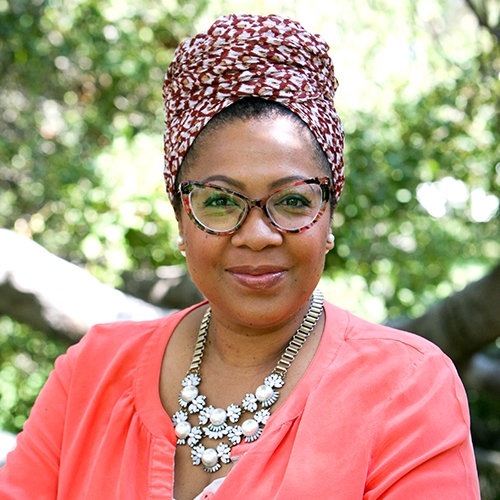

Nekisha Killings is an equity strategist, internationally board-certified lactation consultant, and maternal and child health advocate who speaks, teaches, and facilitates on topics related to equity and dismantling bias across various sectors.
When she is not home educating 4 future world changers, she acts as a Director of Equity, Inclusion and Belonging at Lactation Education Resources and consults organizations on creating and implementing strategies to better support marginalized communities.
Nekisha holds a Masters in Public Health and penned the chapter titled Cultural Humility in the latest Core Curriculum for Interdisciplinary Lactation Support text. Nekisha is on a mission to normalize brown breasts and nipples in health education, thereby better equipping healthcare providers to accurately assess and treat people of color.
Nekisha's work is rooted in a compassion and candor that could only have been cultivated in years of supporting new parents during their first days of parenthood. Nekisha is an active duty military spouse who has been awarded the Spouse of the Year designation for her volunteer efforts supporting families.
Topic: Breast Assessment and Non-White Skin Tones - [View Abstract]
Topic: BreastSide Manner: A Patient-Centered Approach to Lactation Support - [View Abstract]
Topic: Marching Orders: Developing Practical and Impactful Care Plans - [View Abstract]
Is a red spot always a key indicator of mastitis? What about the deep purple trademark of vasospasm? How does eczema present on non-white skin? Performing a standard breast assessment may cause clinicians to overlook or misidentify key indicators of maladies in patients that are not fair skinned. Learn how you can improve your assessments and familiarize yourself with other ways to identify common conditions in patients populations that may not have been featured in your textbooks.

Breast Cancer During Breastfeeding and Breastfeeding After Breast Cancer

Fedro Peccatori is a medical and gynecologic oncologist whose clinical activities mainly include diagnosis and treatment of breast cancer, gynecological malignancies and tumors of young adults. He is Director of the Fertility and Procreation Unit within the Division of Gynecologic Oncology at the European Institute of Oncology, Milan, Italy.
His research projects deal with fertility preservation and counselling in young oncological patients, pregnancy associated cancers, pharmacological protection of ovarian function during chemotherapy, molecular characterization breast and gynecological malignancies.
He’s part of the ESMO task force Adolescent and Young Adult and ESMO faculty member for breast cancer. At present, he acts as Scientific Director at the European School of Oncology (ESO), where he’s in charge of organizing and supervising international courses and masterclasses on different oncological issues.
He has been interested in breastfeeding in cancer patients since 2009 and has published a number of papers on this issue.
Breast cancer is the most frequent malignant tumor during reproductive age.
Around 1/10000 nursing mothers are diagnosed with breast cancer every year. In this rare and difficult situation, patients and healthcare providers should be knowledgeable about the prognostic and practical implications of such an event. Chemotherapy may pass into the milk and breastfeeding is usually contraindicated during chemotherapy. Weaning should be gradual, to avoid breast inflammation and mastitis. A thorough psychological support should be given to the nursing mother to help her into the oncological trajectory.
On the other hand, the number of young breast cancer survivors is increasing and more and more patients enquire about the possibility of subsequent pregnancies and breastfeeding. The breast treated with conservative surgery and subsequent radiation is less responsive to hormonal stimulation, with reduced glandular hyperplasia and hypertrophy. Milk production is usually decreased in the previously affected breast and surgery may affect duct integrity. Nonetheless, each breast has the capability to self regulate milk production according to the baby’s suckling habits, and many evidences support the notion that one breast is enough. Specific education programs should focus on adequate baby positioning, correct latching and reinforcement of the advantages of on demand breastfeeding. Data from our group demonstrate the feasibility of breastfeeding after breast cancer, but qualified lactation counseling to support patients and caregivers is needed.

View Details / Enroll

Breastfeeding / Nursing Aversion and Agitation (BAA) in breastfeeding mothers

Zainab Yate is a Biomedical Ethicist, with a specialist interest in infant feeding. Zainab is Vice Chair and named qualitative lead on a paediatric flagged Research Ethics Committee Panel for the Health Research Authority (HRA) in the UK, reviewing research protocols for over a decade. Zainab's previous working background is in Public Health and Commissioning the National Health Service (NHS) in the UK. She had also been a volunteer breastfeeding peer supporter with the NHS for a number of years, is the owner-author of the resource site for mothers and healthcare practitioners on Breastfeeding / Nursing Aversion and Agitation and author of "When Breastfeeding Sucks".
Topic: Breastfeeding / Nursing Aversion and Agitation (BAA) in breastfeeding mothers - [View Abstract]
Topic: Research Ethics & Infant Feeding: How to Utilise the Four 'D's of a Brief Assessment - [View Abstract]
Aversion to breastfeeding or agitation while breastfeeding is known to occur in some women who breastfeed while pregnant, or who tandem feed a newborn and a toddler. However, it is a little researched area, and the paucity of published literature around breastfeeding aversion and agitation reveals a significant gap in the literature. My presentation presents the findings of an exploratory online survey that sheds light on what appears to be a commonly experienced phenomenon of aversion and agitation whilst breastfeeding, which varies in form, severity and duration. BAA is characterised by feelings of anger or rage, a skin crawling sensation and an urge to remove the suckling infant, but can also be feelings of agitation and irritability whilst the infant is latched. Mothers who experience BAA still continue to breastfeed, but have feelings of guilt and shame about BAA and are often confused about having feelings of BAA. Research is needed to understand the reasons for BAA, its causes, triggers and strategies to minimize the experience in breastfeeding mothers.

View Details / Enroll
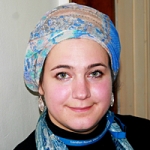
View Details / Enroll

Breastfeeding for Maternal Cardiovascular Health: A Review of the Evidence

Sonia Semenic is an Associate Professor at the Ingram School of Nursing, McGill University (Montreal, Quebec, Canada) and a Nurse Scientist at the McGill University Health Center. After many years of experience as an IBCLC and Clinical Nurse Specialist in maternal-child health, Sonia completed a PhD in Nursing and postdoctoral training in community health. Her research aims to better understand the process of knowledge translation (KT) in perinatal health, with a particular focus on the implementation of evidence-based practices to protect, promote and support breastfeeding. She currently co-leads the Knowledge Translation Platform for the Quebec Nursing Intervention Research Network, and teaches graduate courses on knowledge translation in nursing practice.
Topic: Moving from Evidence to Practice: Knowledge Translation and Breastfeeding Support - [View Abstract]
There is mounting research evidence that lactation is associated with both short- and long-term benefits for maternal cardiovascular health. Observational studies have found that lactation can lower maternal blood pressure, risk of metabolic syndrome, and other markers of cardiovascular risk (Rameez et al, 2019; Qu et al, 2018), and a recent meta-analysis involving more than 1 million individuals concluded that breast/chest-feeding is associated with a 10% lower risk of fatal and non-fatal cardiovascular disease or stroke in later life (Tschiderer et al, 2022). Potential explanations for the cardioprotective impacts of lactation include the role of lactation in postpartum lipid metabolism (Countouris et al, 2020), beneficial effects of oxytocin on the cardiovascular system (Jankowski, 2020), and the role of oxytocin in the stress response (Brunton et al, 2008). However, the relationship between lactation and cardiovascular outcomes is complex and may be mediated by such factors as obesity and metabolic syndrome (Stuebe, 2015). This presentation will review the latest research evidence related to the association between lactation and cardiovascular outcomes, and provide guidance on how to promote breast/chest-feeding for maternal cardiometabolic health.

View Details / Enroll
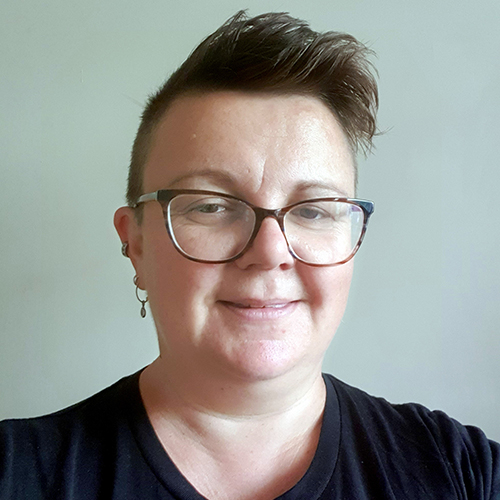
Breastfeeding Twins and Triplets: Supporting Families During Their Breastfeeding Journey

Kathryn Stagg is mum to 4 boys, twins and 2 subsequent singletons. She trained as a breastfeeding peer supporter and volunteered in the groups for years in and around Harrow, NW London, UK.
Kathryn caught the breastfeeding support bug and decided to further her knowledge training as a Breastfeeding Counsellor with the Association of Breastfeeding Mothers and then qualifying as an IBCLC 5 years ago.
Kathryn started Breastfeeding Twins and Triplets Facebook group almost 8 years ago and it now has over 9000 members. It has recently been made into a UK charity. Kathryn is passionate about delivering high quality breastfeeding support to as many twin and triplet families as possible, creating resources and educating health care professionals and breastfeeding supporters. She runs a small private practice and continues to teach music part time, her original career path. Kathryn is the author of Breastfeeding Twins and Triplets; a guide for professionals and parents.
/p>
Topic: Don't Let Us Fool You: Breastfeeding in Late Preterm and Early Term Babies - [View Abstract]
This session will help you understand the challenges of a multiple pregnancy and birth. Discover preparations that can help ease stress and increase success in lactation. Learn how to support families experiencing premature birth. You will understand the best way to help parents establish breastfeeding their multiples, even with late preterm/early term birth. This session will help attendees gain and understanding of how to navigate the challenges of breastfeeding multiples and how to support families effectively during the different stages of their breastfeeding journeys.

View Details / Enroll
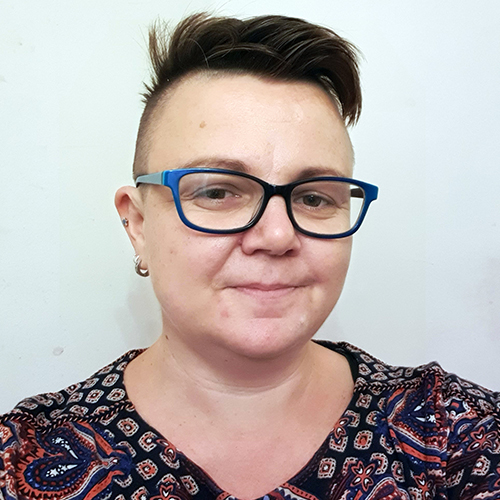
View Details / Enroll




